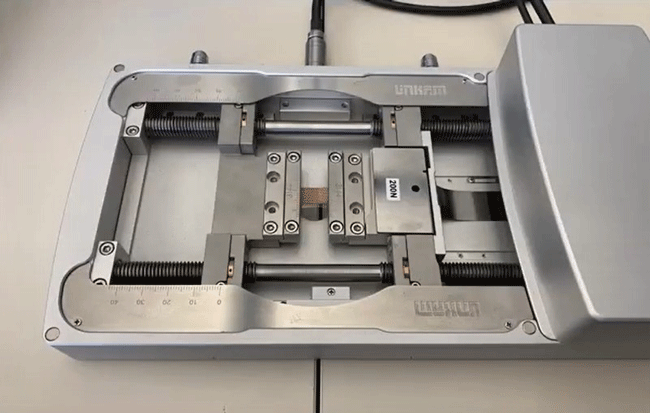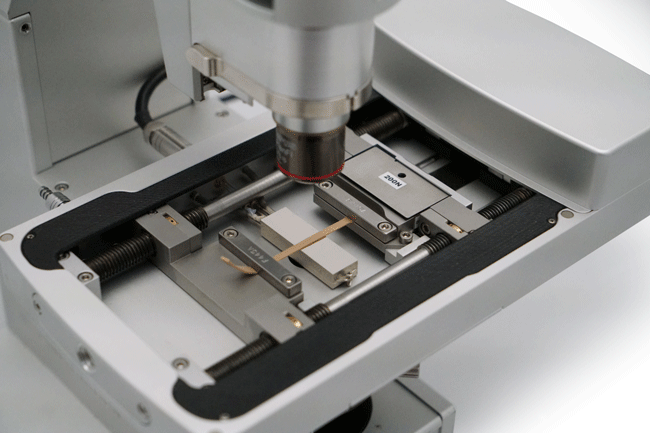Testing Mechanical Properties with a Linkam Modular Force Stage
Mechanical testing with the Linkam Modular Force Stage (MFS) can be utilized to support all kinds of different research fields, including polymers, food science, medical devices, wound care products, biomaterials, and pharmaceutical compounds. The modularity of the Modular Force Stage continues to grow as Linkam continues to enhance this system; you can currently measure tensile strength, fracture modes, and analysis, modulus, and elasticity of materials.




MFS grips are a key component of the system and Linkam is always increasing the number of grip options available, including tensile testing, compressions testing, three-point bending, and probing a liquid cell with electrical connections. We are always happy to discuss custom grips.

Force beam strength and resolution are critical depending on your sample type, and now Linkam offers four different options:
- 2N force beam with 0.00001N resolution
- 20N force beam with 0.0001N resolution
- 200N force beam with 0.001N resolution
- 600N force beam with 0.01N resolution
Do you need to heat or cool your sample as it’s being tested within the MFS? Linkam can provide a system with liquid nitrogen cooling capability down to -195C, upper limit heating of 350C, ambient base plates for biological applications, and now offers a 350C vacuum-compatible heating plate for beamline applications. Use the intuitive LINK software to plot and record temperature, force, and grip distance data.

Finally, Linkam has added even more functionality, including atmospheric humidity control with the Linkam RH95 controller, and electrical connections enabling electrical measurement on the sample during testing.

In this case study, learn how Dr. Hannah Leese, an independent researcher at the University of Bath, is breaking new ground in POC diagnostics for nanomedicine, and improving understanding of the mechanical properties of novel materials.
Contact us today and submit your samples for a free evaluation and demonstration.
Comments
add comment